programming
Latest

Microsoft, Alphabet help you learn quantum computer programming
The very concept of a quantum computer can be daunting, let alone programming it, but Microsoft thinks it can offer a helping hand. It and Alphabet's X are partnering with Brilliant on an online curriculum for quantum computing. The course starts with basic concepts and gradually introduces you to Microsoft's Q# language, teaching you how to write 'simple' quantum algorithms before moving on to truly complicated scenarios. You can handle everything on the web (including quantum circuit puzzles), and there's a simulator to verify that you're on the right track.

Making magic with the Harry Potter Kano Coding Kit
Like so many Harry Potter fans, I've dreamed of attending Hogwarts and learning magic with a wand, cauldron and bulging bag full of quills, ink and parchment. In the absence of real witchcraft and wizardry, I've visited movie sets and played countless video games of varying quality. While fun, none of these experiences capture the thrill of actually understanding and performing magic. There's a thrill, of course, to summoning a Patronus with a DualShock 4 controller. These spells rarely feels earned, however, because they don't require much practice or knowledge to pull off in-game.
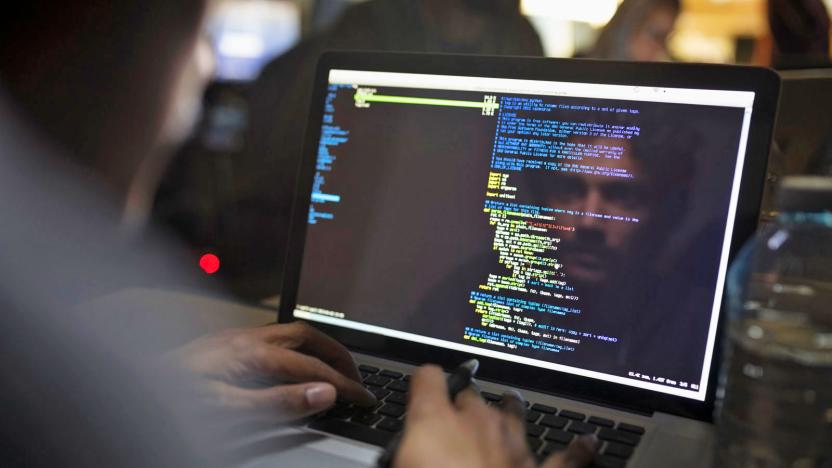
Machine learning can 'fingerprint' programmers
Programmers tend to have their own distinct styles, but it's not really feasible to pore over many lines of code looking for telltale cues about a program's author. Now, that might not be necessary. Researchers have developed a machine learning system that can 'de-anonymize' programmers, whether it's through raw source code or compiled binaries. As explained to Wired, the approach trains an algorithm to recognize a programmer's coding structure based on examples of their work, and uses those to pinpoint common traits in code samples. You don't need large chunks of a given program, either -- short snippets are often enough.

Kano's next coding kit is a Harry Potter wand
Harry Potter fans have plenty of replica wands to choose from. Some are designed for children, with mystical sound effects and LED lights. Others hew closer to movie props with beautifully carved handles and tips. Few, however, replicate the art of learning and performing magic. Kano, a startup based in London, is hoping to change that with its new learn-to-code Harry Potter wand kit. Like the company's previous hardware, it comes with a companion app that teaches you programming through block-based logic. This time, though, the challenges produce spells that you control on screen with a build-it-yourself plastic wand.
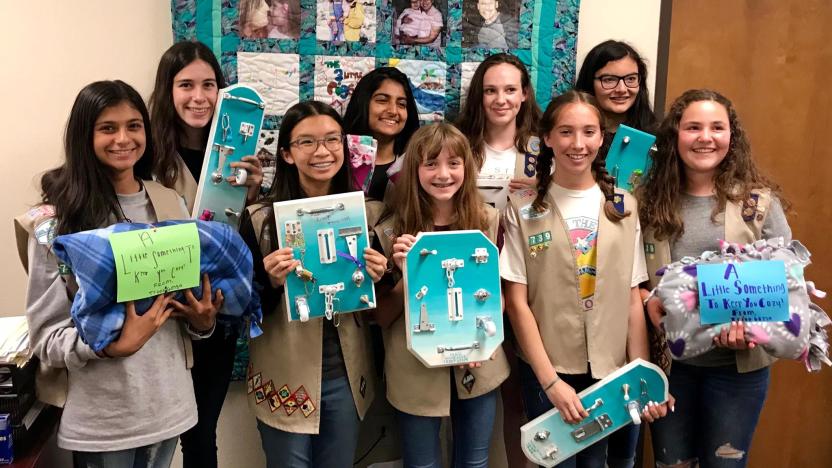
Girl Scouts add badges for cybersecurity and the environment
The US Girl Scouts campaign to promote STEM education is advancing to its next logical step: even more badges. The organization is introducing 30 new badges that promise to foster scientific and computer know-how across the Scouts' age groups. Younger members from kindergarten to grade 5 can earn badges for topics like cybersecurity (particularly online privacy and safety) and space science, while older Scouts can learn to design and program robotics as well as prepare for college. And regardless of age, they can earn Environmental Stewardship badges that teach them to care for the planet.
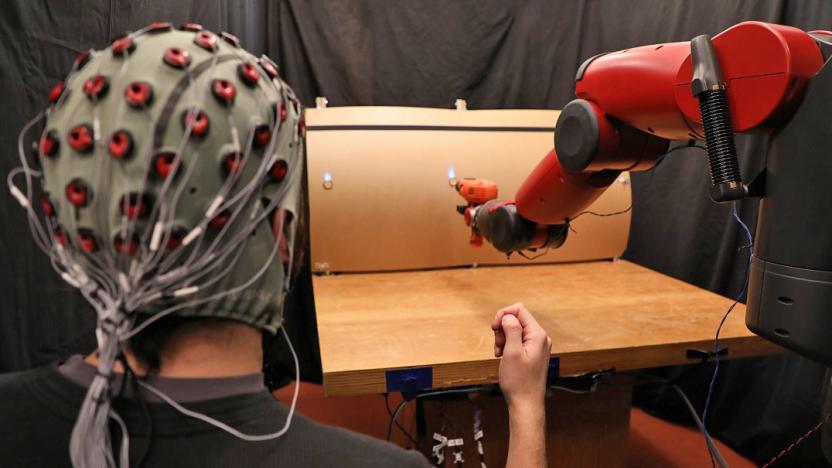
MIT uses brain signals and hand gestures to control robots
Robotic technology has a staggering range of applications, but getting it to perform adequately can be a challenge, requiring specific programming based around the way humans communicate with language. But now, researchers from MIT have developed a way to control robots more intuitively, using hand gestures and brainwaves.
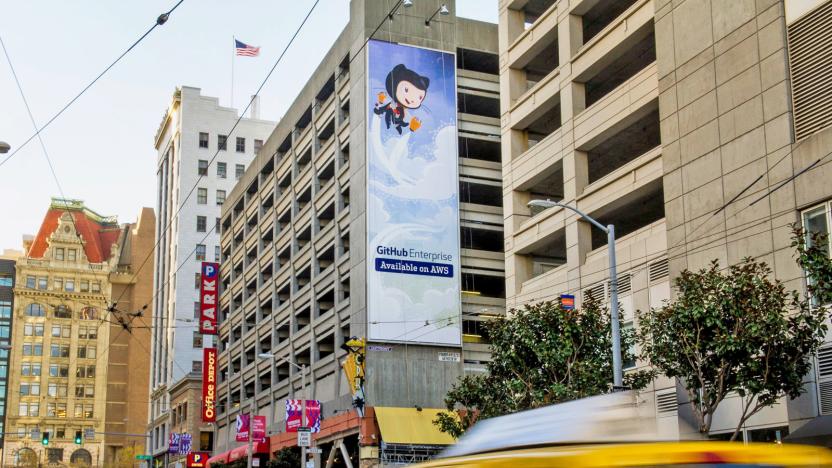
Microsoft has discussed buying code giant GitHub (updated)
GitHub is practically a household name among developers looking to store, share and discuss code, but it's not in a great position when it's floundering in a bid to replace its outgoing CEO. And it appears that Microsoft might seize this opportunity. Sources talking to Business Insider and CNBC have heard that Microsoft held talks with GitHub in the past few weeks that started with a joint marketing deal, only to blossom into talks of an investment or a full-fledged acquisition.

Glitch launches its 'YouTube for app creators'
Fog Creek Software (led by well-known entrepreneur Anil Dash) has spent about a year testing Glitch, a sort of YouTube for app creators where people can create, modify and host code in an easy to use, collaborative environment. And now, it's ready for public consumption: Glitch has dropped the beta tag and is now officially available to everyone. The site lets you upload working code for everything from websites to VR experiences, and encourages you to "remix" them regardless of your skill level. You don't even have to figure out where to launch them, as Glitch automatically hosts your work.

Apple trains Chicago teachers to put coding in more classrooms
Apple isn't quite done announcing educational plans in Chicago. It just unveiled a partnership with Northwestern University and public schools to help teachers bring programming and other forms of computer science into Chicago-area classrooms. The trio will set up a learning hub at Lane Tech College Prep High School (conveniently, the venue for Apple's iPad event) that will introduce high school teachers to Apple's Everyone Can Code curriculum. They'll also have the option to train in an App Development with Swift course to boost the number of high school-oriented computer science teachers.
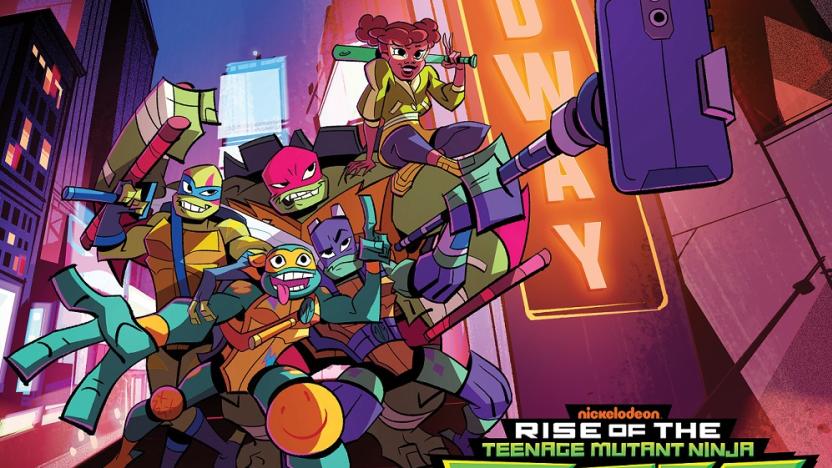
Nickelodeon will use VR and AR to keep kids off Netflix and YouTube
Nickelodeon has announced an explosion of content for the 2018-2019 season in a bid to keep easily-distracted kids watching the network. More than 800 brand new episodes of new and returning series will hit its screens -- a 20 percent increase compared to last year -- and it plans on moving into the VR and AR landscape through its kid-facing apps.
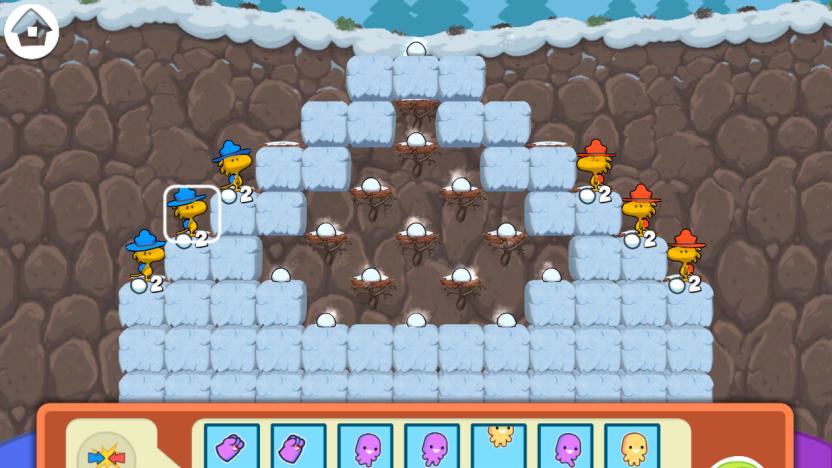
Snoopy is your latest coding teacher
Snoopy is taking a break from lying on his doghouse and staring at the sky to help kids learn about computers and coding. As part of Computer Science Education Week (December 4-10), codeSpark Academy and the Peanuts brand are teaming up to release holiday-themed Snoopy Snow Brawl, a cute multi-player coding game that encourages kids to use problem-solving, strategy and algorithms in a snowball fight between Woodstock and his bird buddies, refereed by Snoopy.

Raspberry Pi laptop teaches code with modular innards
The power and affordability of the Raspberry Pi has given rise to a new type of computer. One that goes beyond the credit-sized board, with colorful shells and displays that make it feel like a normal laptop or PC. The latest is the all-new Pi-Top, a modular laptop with a unique sliding keyboard. Pull it toward you and a large tray is revealed underneath with a Raspberry Pi 3 board and space for additional parts. The idea is to tweak and upgrade its innards for different coding projects designed by the Pi-Top team, thereby learning about code and electronics simultaneously.

Apple reportedly taps Spielberg for new 'Amazing Stories'
Looks like Apple found someone to spend some of that billion dollars it earmarked for original TV and movies on: Steven Spielberg. Each episode of the revived Amazing Stories anthology series will cost about $5 million, according to Wall Street Journal's sources, and Spielberg will serve as executive producer for the show. Bryan Fuller (American Gods, Hannibal) is set to write according to Deadline, and the show has apparently been on ice for a few years. It's a partnership between the filmmaker's Amblin Television company, NBCUniversal and the iPhone maker.
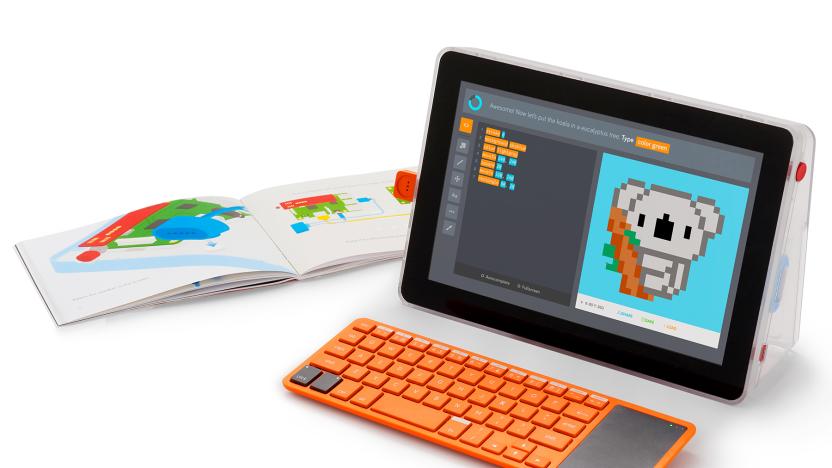
Kano combines its coding kits for a DIY 'laptop'
Kano, the company behind a variety of build-it-yourself computer and coding kits, has unveiled a "laptop" today. A portable computer is probably more accurate. Whereas most laptops have a clamshell design, the new "Computer Kit Complete" keeps the screen and keyboard separate. All of the components are kept inside the display unit, and like a box of LEGO, there's an instruction booklet that teaches you how to put everything together. One of the parts is a Raspberry Pi 3 board, which runs custom software called Kano OS. It's packed with child-friendly programming activities and some basic apps including YouTube and WhatsApp.

Apple sets $1 billion budget for original TV shows
Apple is finally putting its money where its mouth is, setting aside $1 billion to pursue the original programming agenda it's been making so much noise about it recent times. In June, the company poached Jamie Erlicht and Zack Van Amburg -- the TV execs behind Breaking Bad and The Crown -- from Sony, noting at the time that it "had exciting plans in store for customers". Now, according to the Wall Street Journal, Apple has opened its war chest to make those plans a reality.

Kano’s latest DIY kit turns motion into code
DIY computer company Kano has released another brightly-coloured addition to its learn-to-code arsenal: a motion sensor kit. The standalone product comes with the Kano App to teach would-be coders how to translate movement into data which can be applied to games, apps and music. The kit, which is available for $30/£30, includes a USB motion sensor which can connect to any Windows or Mac computer -- or the original Kano Computer kit -- and comes with an easy-to-follow storybook featuring beginner's coding challenges. Learn to code a hand-controlled version of the classic game Pong, for example, or make noise and mix tunes by "scratching" a DJ turntable.
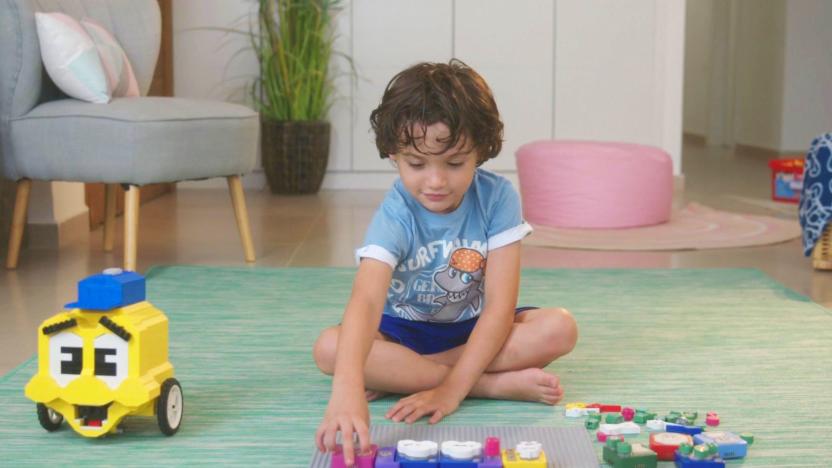
Algobrix teaches coding with Lego-like bricks
Legos have been a beloved for decades as toys that teach constructive aesthetics and foster DIY creativity. Then the company started releasing Mindstorm kits to turn static models into moving robots with a little programming magic -- but these were always aimed at older kids with some tinkering prowess. Algobrix, a brick-based system going live on Kickstarter today, aims to teach block-loving children the elements of coding without having to touch a computer.

'Coding Jam' uses musical blocks to teach kids programming concepts
Last year, Osmo expanded its iPad-based children's learning system with a program that teaches kids to code by linking tangible tiles with on-screen commands. Now the company's expanded its platform with Coding Jam, an add-on that assigns musical tones to a new set of blocks, allowing young learners to tap out tunes in a sequence just like a series of code elements.

'Tomorrow's World' returns to the BBC, sort of
The BBC is bringing back Tomorrow's World, but in a different form. The beloved British TV show, which covered scientific and technological innovation from 1965 to 2003, will be used as an umbrella brand for a new, year-long season of programming. At the centre will be a "digital hub" that offers a daily curation of TV and radio shows online, as well as content produced by partners such as the Science Museum and the Royal Society.

Tynker app teaches kids Apple Swift with coding games
Coding is as essential to our kids' education as math and history lessons, with tech leaders, presidents and coding organizations touting the importance of the skill. Learning how to create the stuff on which our modern society runs will ready future generations to make the things that the rest of us will use. Tynker, a company that creates self-paced and school-based coding lessons for kids, has partnered up with Apple's Everyone Can Code program to provide two new courses for students in Kindergarten to 5th grade. The free curriculum -- available via the free iTynker iPad app -- is also integrated across two new curriculum modules for teachers in iBooks.





